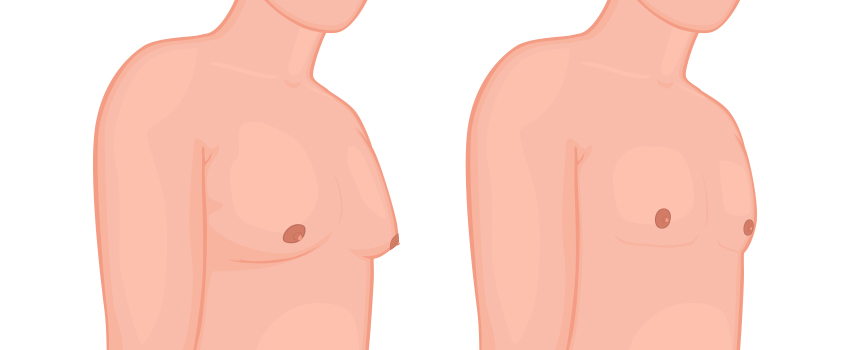Estrogen, often considered a female hormone, is also present in men and plays a crucial role in regulating various bodily functions. However, elevated estrogen levels in men can lead to undesirable effects such as weight gain, reduced muscle mass, decreased libido, and mood swings. Reducing estrogen levels can help restore hormonal balance and improve overall well-being. Here are several strategies to help men reduce their estrogen levels effectively.
1. Maintain a Healthy Diet
A balanced diet is essential for managing hormone levels. Certain foods can help lower estrogen levels in men:
Cruciferous Vegetables:
- Broccoli, cauliflower, Brussels sprouts, and kale contain compounds like indole-3-carbinol and diindolylmethane (DIM) that help in metabolizing estrogen.
High-Fiber Foods:
- Foods rich in fiber, such as whole grains, fruits, and vegetables, aid in the excretion of excess estrogen from the body.
Healthy Fats:
- Include sources of healthy fats like avocados, nuts, seeds, and olive oil, which support overall hormonal health.
Avoid Processed Foods and Sugars:
- Processed foods and sugary snacks can disrupt hormonal balance and should be limited.
2. Exercise Regularly
Regular physical activity can significantly impact hormone levels. Aim for a combination of strength training and cardiovascular exercises:
Strength Training:
- Lifting weights helps increase testosterone levels, which can counterbalance estrogen.
Cardiovascular Exercise:
- Activities like running, cycling, and swimming help reduce body fat, where estrogen is often stored.
HIIT (High-Intensity Interval Training):
- Short bursts of intense exercise followed by rest periods can be particularly effective in improving hormone balance.
3. Manage Stress
Chronic stress can elevate cortisol levels, which may lead to increased estrogen production. Implementing stress management techniques is crucial:
Mindfulness and Meditation:
- Practices like mindfulness meditation can reduce stress and promote hormonal balance.
Adequate Sleep:
- Aim for 7-9 hours of quality sleep per night to support overall health and hormone regulation.
Relaxation Techniques:
- Yoga, deep breathing exercises, and hobbies that promote relaxation can help manage stress levels.
4. Maintain a Healthy Weight
Excess body fat, especially around the abdomen, can increase estrogen levels. Adopting a healthy lifestyle to maintain a healthy weight is vital:
Balanced Diet and Exercise:
- A combination of a nutritious diet and regular exercise can help achieve and maintain a healthy weight.
Avoid Extreme Diets:
- Extreme calorie restriction or fad diets can disrupt hormone levels and should be avoided.
5. Limit Alcohol Consumption
Alcohol can increase estrogen levels and decrease testosterone levels. Reducing alcohol intake can help maintain hormonal balance:
Moderation:
- Limit alcohol consumption to moderate levels, defined as up to one drink per day for men.
Avoid Binge Drinking:
- Avoiding excessive alcohol intake can prevent hormonal imbalances.
6. Consider Natural Supplements
Certain supplements can help lower estrogen levels naturally. However, consult with a healthcare provider before starting any new supplement:
DIM (Diindolylmethane):
- Found in cruciferous vegetables, DIM can help promote healthy estrogen metabolism.
Zinc:
- Zinc supplementation can support testosterone production and overall hormonal health.
Vitamin D:
- Adequate vitamin D levels are essential for maintaining hormonal balance.
Omega-3 Fatty Acids:
- Found in fish oil supplements, omega-3 fatty acids can help reduce inflammation and support hormone health.
7. Avoid Environmental Estrogens
Environmental estrogens, or xenoestrogens, can disrupt hormone levels. Reducing exposure to these chemicals can help:
Avoid Plastic Containers:
- Use glass or stainless steel containers for food and beverages to avoid chemicals like BPA (bisphenol A).
Choose Natural Personal Care Products:
- Opt for products free from parabens and phthalates, which can act as estrogen mimics.
Filter Your Water:
- Use a water filter to remove potential contaminants, including estrogenic compounds, from your drinking water.
Conclusion
Reducing estrogen levels in men involves a comprehensive approach that includes a healthy diet, regular exercise, stress management, and lifestyle changes. By implementing these strategies, men can achieve better hormonal balance, improve their overall health, and enhance their quality of life. Always consult with a healthcare professional before making significant changes to your diet or exercise routine, or before starting any new supplements.

Comments
Post a Comment